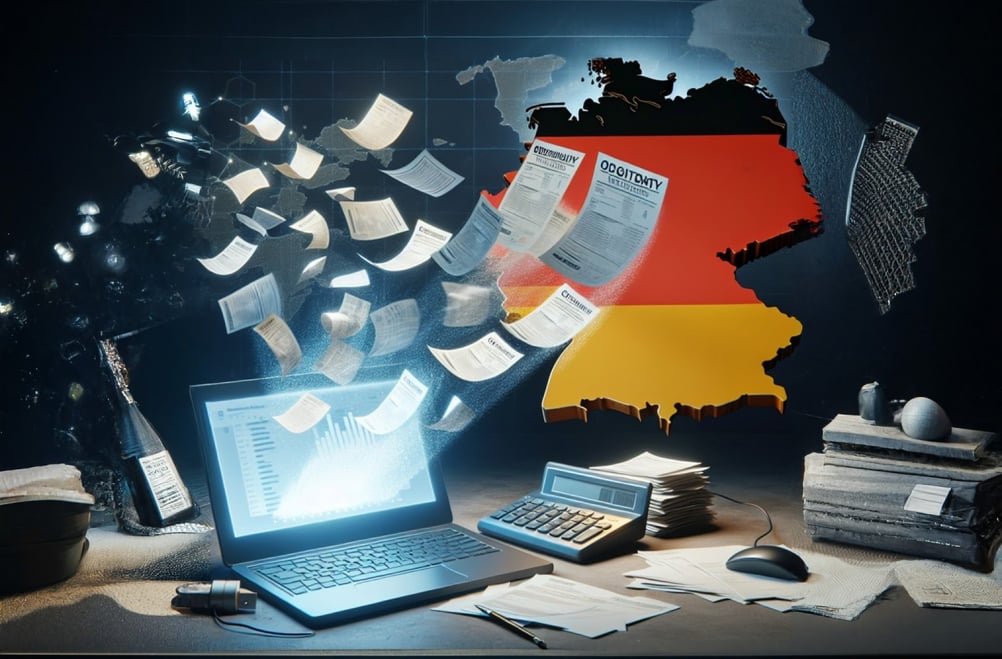Germany's new e-invoice requirement to start in 2025

Germany plans to introduce mandatory e-invoicing for B2B transactions gradually from 2025 to 2028. On October 15, Germany's Ministry of Finance (BMF) published a final document - in which previous drafts from June had been updated - outlining the rules and scope of the new requirement.
The introduction will take place through a first phase starting on January 1, 2025, and then the introduction will be gradual until 2028.
The initial phase of the reform is national only and requires all German businesses to be able to receive structured e-invoices for domestic B2B transactions. The requirement will initially focus on the reception of e-invoices. In other words, the receiving party is expected to have a system in place to electronically manage these digital documents.
"We'll figure it out"
This initiative by the Federal Republic of Germany has in turn meant that Inexchange receives a lot of questions on the subject.
- We have a number of customers with large operations in Europe who, quite naturally, come to us and want us to help them in the countries in which they operate. Germany is a common example in this case. Then we make sure to solve that issue, says Niklas Andersson, Product Manager at Inexchange.
It sounds uncomplicated and, according to Niklas, there is nothing strange about it.
- The invoice is distributed electronically via Peppol or we help them send a ZUGFeRD via e-mail in the first place. We have gotten a good spin on this. We have noticed an interest in Germany all year really, but also in other countries. There are discussions about legal requirements for e-invoices in very many EU states today, he explains.
Economic stimulus package
Formats such as XRechnung and ZUGFeRD (from version 2.0.1 and higher) are allowed, as well as other formats that comply with the European EN 16931 standard. Other examples of acceptable formats are the French format Factur X and Peppol-BIS Billing.
Already one month before the final document was nailed down, it was confirmed by the BMF that the minimum requirement for receiving e-invoices is to have an e-mail address. Alternatively, the parties can agree on other methods of electronic data exchange.
What Germany has done is to take a comprehensive approach by introducing an economic stimulus package in the form of the Wachstumschancegesetz (Growth Opportunities Act). This package includes the country's new e-invoicing requirements. The Bundesrat gave its consent to this in the spring and it has also been supported by the European Commission.
It should be noted that the e-invoicing scheme that will now be implemented only covers the format and implementation of electronic invoices for domestic transactions. It does not include any form of governmental pre-screening or post-issuance reporting, but this is something that may change in 2030, or beyond, as digital reporting requirements are included in the ViDA package recently approved by the EU Council of Finance Ministers (ECOFIN).
In addition to B2B e-invoices, the EU electronic invoice requirements also apply to public contracts (B2G) in Germany since April 2020. The format may vary depending on the state, but should be compatible with Peppol.
The overall aim of the changes is to increase efficiency, reduce tax evasion and facilitate trade by harmonizing invoicing processes across EU countries.
Timetable for Germany's e-invoicing mandate:
January 1, 2025:
- All businesses must be able to receive e-invoices from their suppliers.
- Paper and PDF invoices can only be used with the consent of the recipient.
January 1, 2027:
- E-invoicing becomes mandatory for VAT-registered businesses with a turnover of more than €800,000 in the previous year (2026). For these businesses, issuing paper and PDF invoices will no longer be allowed.
1 January 2028:
- E-invoices become mandatory for all businesses regardless of turnover. Paper and PDF invoices will not be allowed at all.


